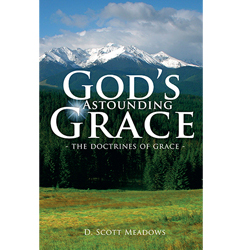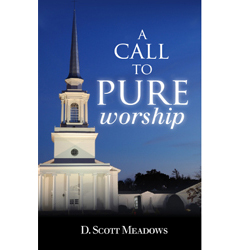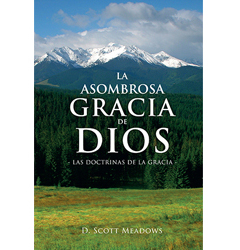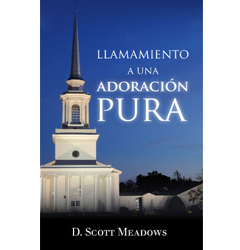

Luther’s Greatest Lesser-Known Hymn:
“Dear Christians, Let Us Now Rejoice”
D. Scott Meadows
The renown Protestant Reformer Martin Luther preached sermons and wrote treatises. He also loved music and composed hymns for the church’s edification. Everyone knows “A Mighty Fortress Is Our God.” Perhaps the hymn we shall consider today is new to you as it was to me only a few weeks ago: “Dear Christians, Let Us Now Rejoice.” One scholar has called this “the hymn of the Reformation” (The Annotated Luther, 4.112). The poetry is good and the theology is even better. Let us study and savor it together.
Luther clearly writes to captivate our hearts with the gospel of our Lord Jesus Christ. The ten verses of this hymn gorgeously rehearse the work of Christ as the Savior of the individual Christian singer in a very personal way. Explanatory comments follow each verse below.
“Dear Christians, Let Us Now Rejoice”
Nürnberg 1523 (six years after the Ninety-five Theses)
1. Dear Christians, let us now rejoice,
That of good cheer and with one voice,
And dance in joyous measure:
We sing in love and pleasure.
Of what to us our God hath shown,
And the sweet wonder he hath done;
Full dearly hath he wrought it.
Addressing believers as a group, Luther calls us to worship God with great feeling and in spiritual unity. The occasion of our worship is His revelation of what He has wonderfully done to save His people from ruin at the great price of His only begotten Son. The gift of Christ as Savior is the heart of the gospel. It is also the greatest stimulant to our joy and worship as Christians, a basis for our proper response to God at all times and places, however our circumstances may change.
2. Forlorn and lost in death I lay,
A captive to the devil,
My sin lay heavy, night and day,
For I was born in evil.
I fell but deeper for my strife,
There was no good in all my life,
For sin had all possessed me.
The Christian singer confesses his or her wretched spiritual condition prior to conversion. Sad and lonely as one spiritually dead and helpless, enslaved to Satan with a sense of being burdened, perhaps even by a sense of guilt, the singer acknowledges a fundamental orientation toward sin from birth. No efforts to reform his heart and conduct were really successful but only aggravated his sinfulness, like one struggling to escape quicksand.
3. My good works they were worthless quite,
A mock was all my merit;
My will did hate God’s judging light,
To all good dead and buried.
E’en to despair my anguish bore,
That nought but death lay me before;
To hell I fast was sinking.
This worshiper dwells for another verse upon his former intense misery. Clerics urged him to do good works and trust in their merit before God, but conscience exposed this as foolish. Further, Scripture condemned his best efforts and so provoked even greater resentment toward God. But this descent alarmed him and increased his despair of salvation.
4. Then God felt sorry on his throne
To see such torment rend me;
His tender mercy he thought on,
His good help he would send me.
He turned to me his father-heart;
Ah! then was his no easy part,
For of his best it cost him.
The direction and tone of this hymn changes dramatically here for the better with the phrase,
“Then God” (cf. Eph 2.1-3 with 2.4 ff.). The sinner is hopeless and helpless unless and until God acts mercifully as Savior toward him. The mention of His “throne” reminds us of the sovereignty of God, specifically in the salvation of particular sinners. The divine love and compassion to this particular sinner is praised for the divine rescue mission that ensued. Wonder arises not only that God is a loving Father to the hateful sinner, but also that He would sacrifice so greatly to redeem the pitiful wretch.
5. To his dear Son he said: “Go down;
’Tis time to take compassion.
Go down, my heart’s most precious crown,
Be the poor man’s salvation.
Lift him from out sin’s scorn and scath,
And strangle for him cruel Death,
That he with thee live ever.”
We are privy in this verse to the eternal counsels of the Almighty. God the Father charges His beloved Son to become the Savior, powerfully rescuing the one now singing His praise for being rescued from otherwise certain ruin, including the ravages of death. “Scath” means harm, damage, or injury. Further, the Father grants the Son a display of His glory in the future eternal fellowship with such a ransomed soul.
6. The Son he heard obediently,
And by a maiden mother,
Pure, tender—down he came to me,
For he would be my brother.
Secret he bore his strength enorm,
He went about in my poor form,
For he would catch the devil.
God the Son harmoniously fulfills the eternal decree of salvation requiring His Incarnation (becoming a true man) born of a virgin, Mary espoused to Joseph. The deity of Christ, “veiled in flesh,” is implied by the phrase “strength enorm” (enormous strength, omnipotence). Yet Christ’s true humanity was a ruse to entrap the devil, foolish enough to conspire in crucifying Jesus, as if that would foil His saving mission. Ironically, the cross was an instrument of accomplishing it!
7. He said to me: “Hold thou by me,
Thy matters I will settle;
I give myself all up for thee,
And I will fight thy battle.
For I am thine, and thou art mine,
And my place also shall be thine;
The enemy shall not part us.
Now Luther, with poetic license, puts words into Christ’s mouth, and the speech is directed toward the one now singing gratefully—an emotionally-moving device. The first words are assurance that Christ is for you, against your enemies, and certain of spiritual victory. Mutual covenantal ownership is implied, stemming from the divine decree of redemption. The “great exchange” is artfully suggested. “My place also shall be thine” in the battle against the devil for your soul.
8. “He will as water shed my blood,
My life he from me reave [plunder] will;
All this I suffer for thy good—
To that with firm faith cleave well.
My life from death the day shall win,
My innocence shall bear thy sin,
So were you blest forever.
The devil (vs. 6) will attack and kill me. Christ will fight to the death, suffering to benefit the one for whom He dies. This gospel of Christ your Savior you must believe enduringly and with all your heart. Christ the innocent One and Christ the dying One will, by His righteous life and atoning death, powerfully win your forgiveness and eternal blessedness.
9. “To heaven unto my Father high,
From this life I am going;
But there thy Master still am I,
My spirit on thee bestowing,
Whose comfort shall thy trouble quell,
Who thee shall teach to know me well,
And in the truth shall guide thee.
Having risen from the dead, Christ also ascends to heaven for You. He lives in glory at God the Father’s right hand. Christ sends His Holy Spirit to comfort you in your troubles, to impart a true, spiritual, and intimate knowledge of Christ, and to guide you as a follower of Christ.
10. “What I have done, and what I’ve said,
Shall be thy doing, teaching,
So that God’s kingdom may be spread—
All to his glory reaching.
Beware all doctrines man will do,
For that corrupts the treasure true;
With this last word I leave thee.”1
The last words of Christ are prospective, giving hope for the future. He has set the example for you to imitate. He has taught the gospel you are now to teach. By such words and deeds the spiritual kingdom of God spreads throughout the world to the glory of God. A somber note concludes the hymn, warning about the ill effect of merely human teachings that corrupt the blessed gospel faithfully relayed by Christ to His people. Ω
____
1. Wendebourg, D. (2016). Selected Hymns. In H. J. Hillerbrand, K. I. Stjerna, T. J. Wengert, & M. J. Haemig (Eds.), Pastoral Writings (Vol. 4, pp. 126–128). Minneapolis, MN: Fortress Press.
All Rights Reserved. Used with permission. No part of this article may be used or reproduced in any manner whatsoever or translated without written permission.
The following books by D. Scott Meadows are available at Trinity Book Service and Cristianismo Histórico:
Ebook: A Call to Pure Worship | D. Scott Meadows




